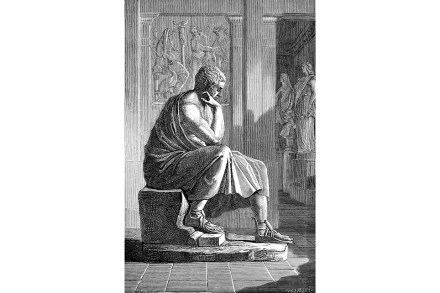The great explorers of the past dismissed as mercenary opportunists
Ceremonial cannibalism was not a European invention but a regular feature of South American societies Simon Park, who teaches Portuguese history and literature at Oxford University, aims to recast the early period of European exploration as a story of disasters rather than successes. His target is the notion that those who led the first European expeditions across the Atlantic or into the Indian Ocean were ‘heroes who pushed forward boundaries of knowledge’. An obvious case is Christopher Columbus, who refused to his dying day to recognise that he had failed to reach the outlying islands of China. He was already the butt of bitter criticism during his lifetime. Vasco da


